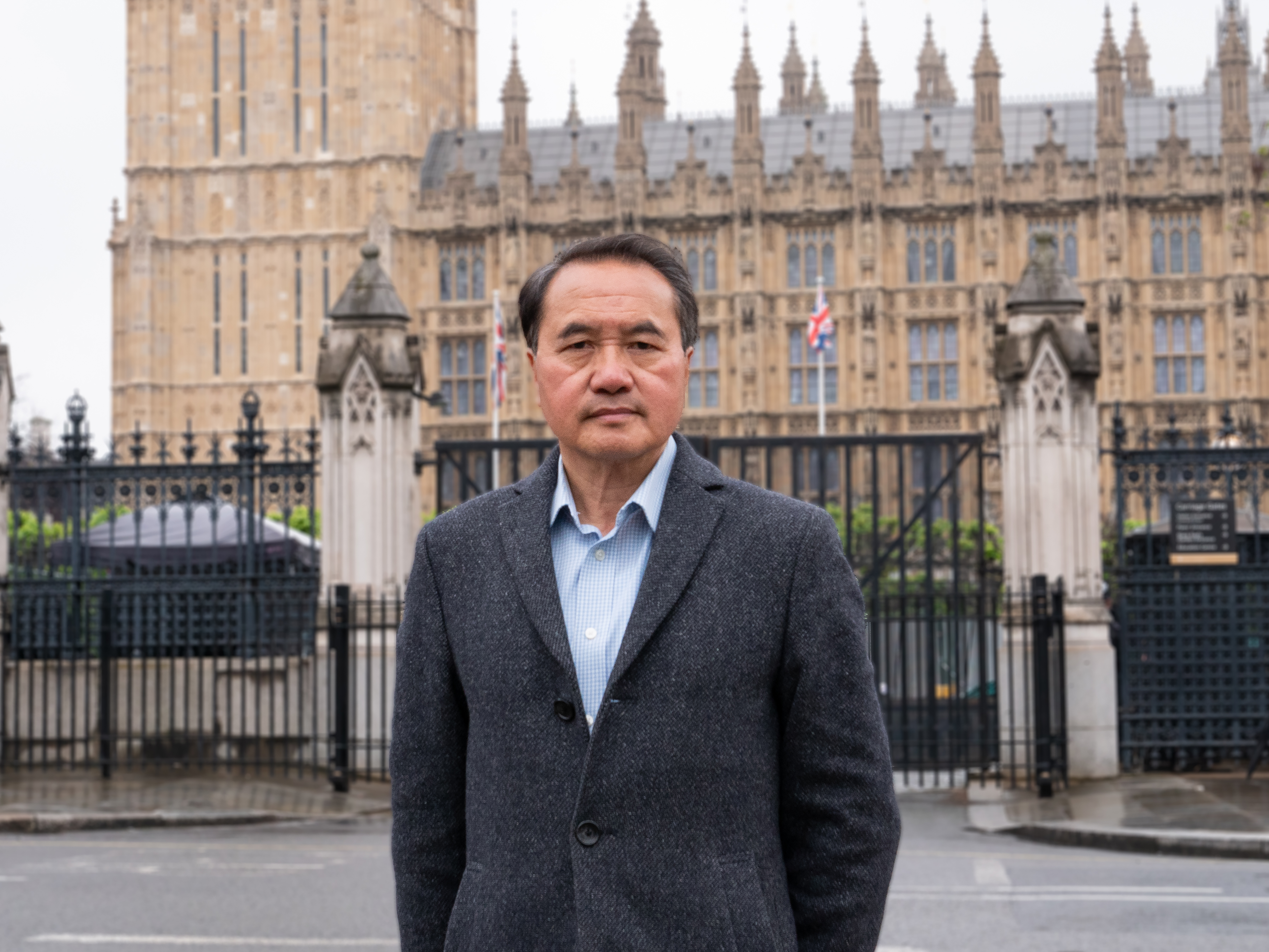Having engaged in Hong Kong’s politics for decades, the veteran politician is now rallying Hongkongers in the UK to vote in the upcoming general election.
Lee Wing-tat was almost late for our meeting. He bumped into an old friend from Hong Kong on the tube, who tried to invite him for a coffee. Thankfully for our interview he declined, but they chatted for 20 minutes.
“Young people may not know me, but some people over 40 do,” he says.
Today, it is more common than ever to meet Hongkongers in the UK. Over 150,000 people from the city have moved to the country since the British National Overseas (BNO) visa scheme, according to the Home Office. The scheme was introduced in 2021 after Beijing imposed a sweeping National Security Law in June 2020 that cracked down on dissent.
Lee, 68, is a familiar figure to many of the new arrivals. For the past four decades he has been at the heart of the Hong Kong’s politics.
From the 1980s to the 2000s, he was elected multiple times as a district councillor, regional councillor and legislator. In 1994, he co-founded the Democratic Party, the largest opposition party in the city.
Lee fled Hong Kong in 2021 after 47 democrats were charged with subversion under the National Security Law. The law was passed by the Chinese central government in response to 2019 protests in Hong Kong against a proposed extradition bill, which would have allowed China to extradite Hong Kong residents to the mainland.
“I might not live to see it, but I believe your generation will
Three years after leaving his home, he is now working with young democrats as an ambassador for Vote for Hong Kong 2024 (Vote4HK), a project to mobilise the Hong Kong diaspora to vote in the upcoming UK elections.
For Lee, advocating for democracy is a lifelong commitment regardless of where he lives.

In an airy café in Westminster with tourists enjoying tea, coffee, and cakes, we start the interview before we’ve even ordered: “Keep talking,” Lee says. “These guys are so slow.”
The café is near the Houses of Parliament, where Lee often meets MPs. The former legislator says he never misses a chance to network in Westminster, as few other Hongkongers enjoy his privileged access.
“It would be very sad if I didn’t attend a meeting and therefore no Hongkonger was present,” he says.
Vote4HK’s lobbying campaign targets swing constituencies with a high population of Hong Kong emigrants, such as Sutton and Reading West, to put their concerns about the UK’s policy towards China and Hong Kong on the political agenda.
Lee says that if they are to have any hope of influencing politicians, Hongkongers need to show that they are a unified electoral constituency: “In short, how many ballots do you have?” he asks.
Despite being the oldest on the campaign’s committee, Lee’s opinion holds as much weight as the young activists he works with.
Ian Ng, 21, another committee member, calls Lee “Ah Tat”, an informal form of his name that denotes a peer relationship in Chinese. Ng is from the more radical localist camp of Hong Kong politics which has had factional conflicts with the more moderate Democratic Party, but he has no problem working with Lee, finding him “sincere” and feeling like they are equals as colleagues.


Lee says the most important thing is not to divide the generations, with the young bringing enthusiasm and the elders contributing their experience.
As a protestor in his 30s, he was himself criticised by the city’s older politicians after he heckled then-Foreign Secretary Sir Geoffrey Howe, who had refused to grant millions of British subjects in Hong Kong the right to live in the UK after the brutal crackdown on pro-democracy protesters in Beijing’s Tiananmen Square in 1989.
This year Lee will mark the 10th anniversary of Hong Kong’s pro-democracy Umbrella Movement away from his hometown. As one of the nine leaders, Lee was convicted of public nuisance charges and received a suspended jail sentence. Today, five of them have either been jailed or forced to flee their homes.
“To engage in politics under an authoritarian regime,” Lee explains, “you have to get mentally prepared”.
Citing the example of the struggle for women’s rights, he believes democratic progress may seem painstakingly slow or non-existent – but that sudden breakthroughs do occur.
“I might not live to see it,” he says, “but I believe your generation will”.
At an event in April attended by MPs and various Hong Kong community groups in the UK, he told the young people: “You don’t need to prove to me that democracy will arrive. If you know where I’m buried, just come and tell me, ‘Uncle Tat, Hong Kong is democratic now.’ That will make me smile even in the grave.”
Feature Image: Lee Wing-tat in front of the Palace of Westminster. Photo credit: Kai Kong

